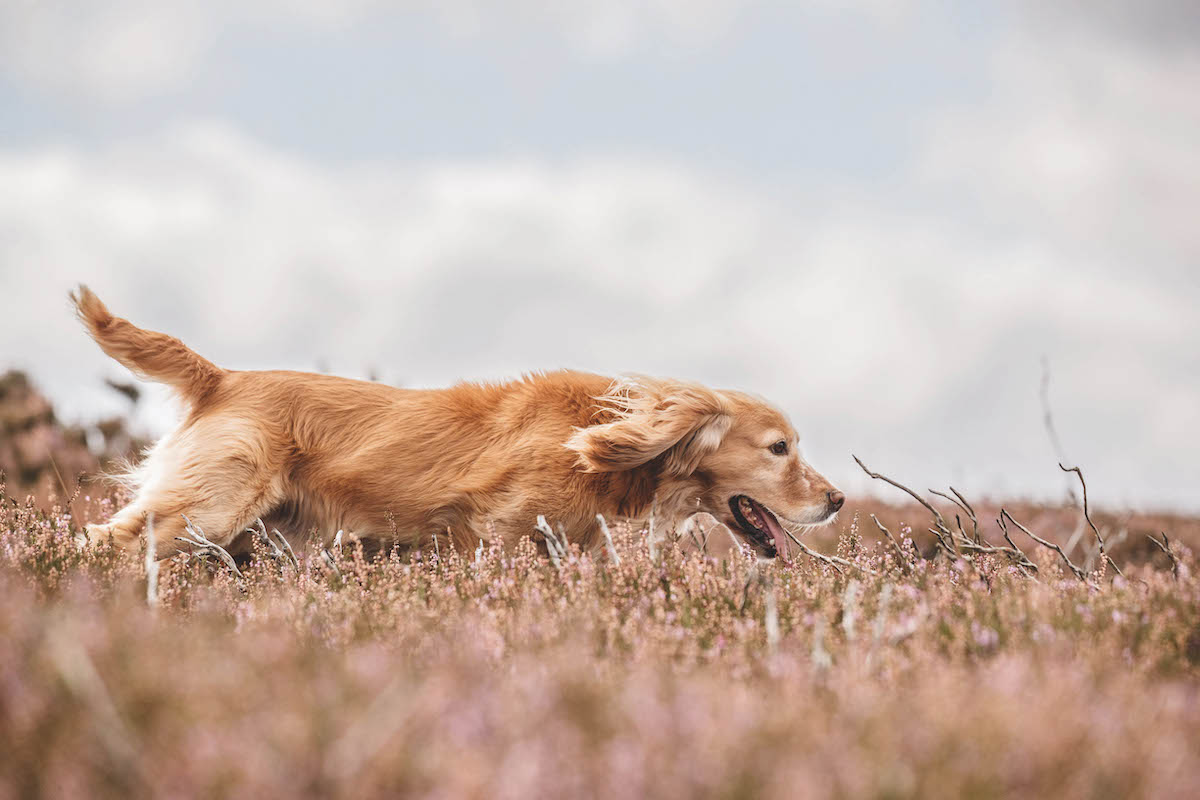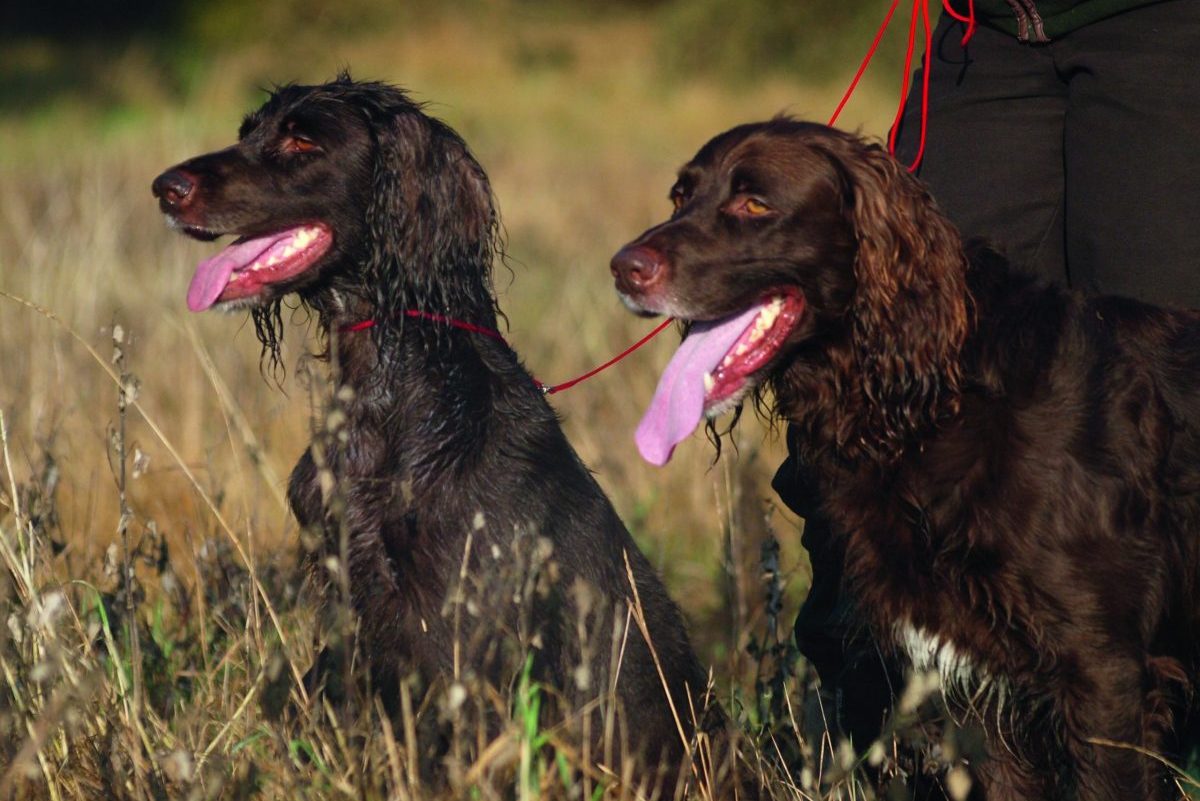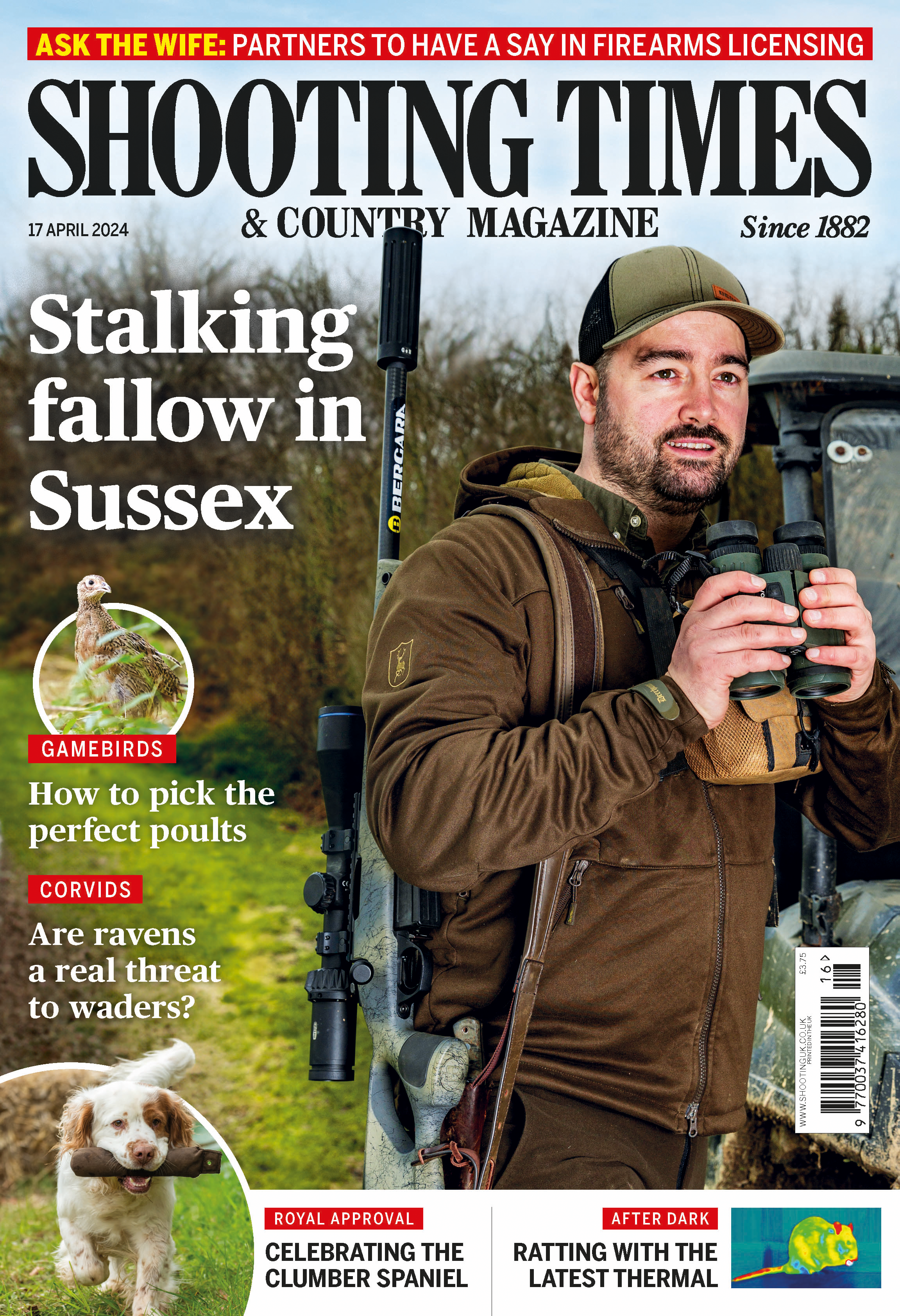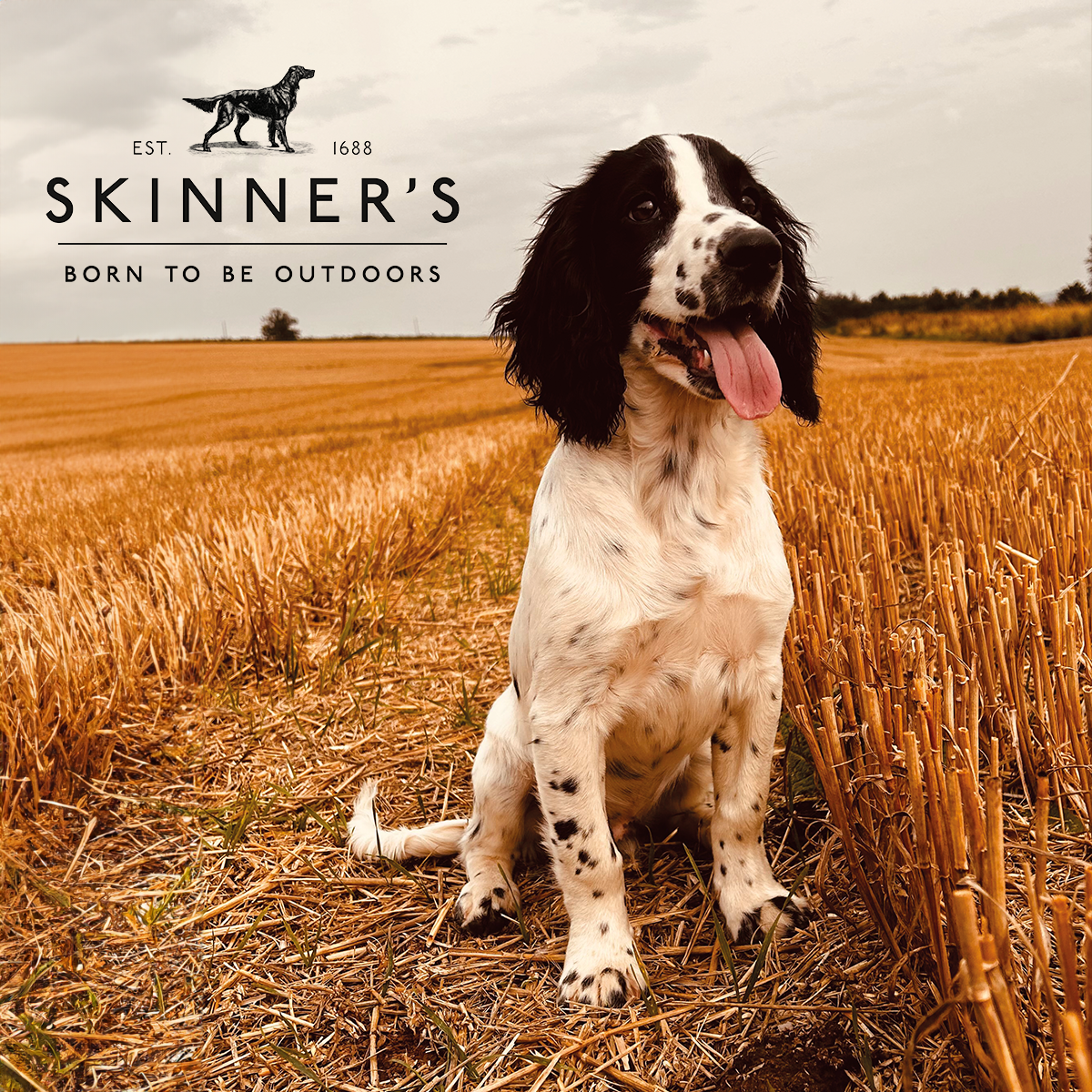Ian Openshaw on gundogs and field trials
Ian Openshaw has over 100 field trial champion gundogs to his name and here he shares some extremely strong views on the trialling scene.
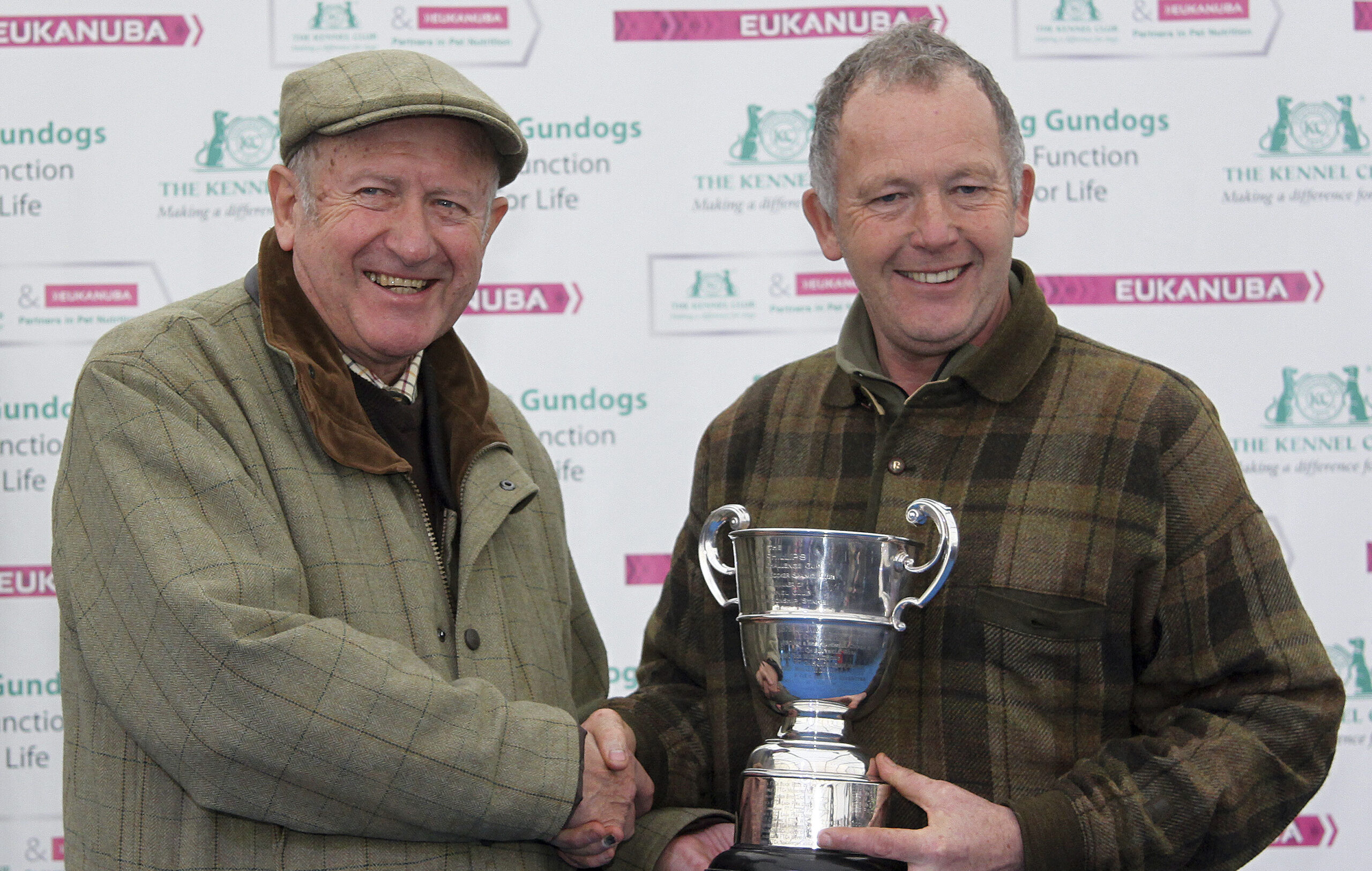
Ian Openshaw and I first met a few years ago at a mock grouse trial in Northumberland. Having heard a few tales about the man who has judged the Retriever Championship twice, the Cocker Championship once and the Spaniel Championship twice, I was interested to find out what he was really like. His wife of 35 years, Wendy, is also one of the leading lights in the field trial world and between them they have made the surname Openshaw synonymous with success in this arena. Wendy has been Ian’s rock and his biggest fan throughout his career. “I’ll just ask Wendy,” was a common reply when I was interviewing him. Ian has travelled extensively with his dogs and his Rytex affix is world famous. When he’s not training dogs for HM The Queen, he can be found cheering on one of his many racing greyhounds.
Amy Bates: Do you prefers spaniels or labradors?
Ian Openshaw: “Spaniels.”
Amy Bates: What is your career highlight to date?
Ian Openshaw: “The highlight of my gundog career has to be making up three different breeds in one season – it was during the 1995/1996 season that I made six dogs into champions: two cockers, three springers and a labrador. And another one that’s not my own personal career highlight but pleased me just as much was when my wife Wendy won her first cocker championship in 2002.”
Amy Bates: Who do you like to judge with?
Ian Openshaw: “I don’t mind really who I judge with to be truthful; I don’t mind anybody really – as long as they are dog people. Perhaps I don’t mind that much because normally when I’m judging we do it my way.”
Amy Bates: Who in your opinion are the best spaniel handlers and best labrador handlers?
Ian Openshaw: “Old John Halstead is an all-round handler. He could train anything, soft or hard or whatever the type of dog. He’s the only labrador bloke I know who has done well with spaniels too – he came third in the championship. Very few labrador men have succeeded with a spaniel.”
Amy Bates: What is your favourite trialling ground?
Ian Openshaw: “Anywhere where there’s wild game. Labrador trials are the worst for not having wild game. So many labrador trials are manufactured; I would say that 75 per cent of labrador trials are man-made – they’re not natural, are they? They are held at commercial shoots or game farms. That’s the reason I like trialling spaniels, because the trials are on wild game. With labradors now if you can’t put your dog where you want to they’re done. With the manufactured shoots, the birds don’t fly naturally – they don’t know where to fly.
“There are too many trials and I would say that 75-80 per cent of the labrador people don’t even shoot. It would be better to have fewer trials and just go to good ground. We have to go out and find better ground. To be truthful, these commercial shoots are a business but it’s not good for the dogs because they’re like a factory. Natural wild game is more enjoyable and better for the dogs. But if you play football with a square ball that’s what you’ve got to do.”
Amy Bates: Who was your mentor?
Ian Openshaw: “The people I’ve learnt the most from are John Halstead and quite a few trainers in America. A bloke called Jerry Ray Cassio. He’s a spaniel bloke and used to train dogs for films; his kennels were in New York. I first met him because he bought dogs from me. We used to go out about six times a year – he was the first bloke to show me how to do all sorts of things with dogs – he was amazing. Wendy and I used to go over there and the most dogs we ever took over in one trip was 15; that was about 25 years ago.”

Ian Openshaw in action during the Cocker Championship at Dunira, Perthshire, in January this year.
Ian Openshaw on modern field trials and the future
Amy Bates: What are your thoughts on trialling today?
Ian Openshaw: “Dogs are as well trained today as they ever were but there are just lots and lots of people coming into it from working tests. In my opinion that’s not good for the betterment of the dog. But like I said before, you’ve got to train for the times, haven’t you? If you want to compete and you want to stay in it, you’ve got to adapt. A dog trainer sometimes has a good dog, but a good dog trainer always has a good dog.”
Amy Bates: If you could pass on one piece of advice to new people in the sport, what would it be?
Ian Openshaw: “Buy the best dog you can afford. Get the best advice you can from someone like young John Halstead, David Lisett or myself. The worst thing you can do is join a gundog club training class. What happens at the clubs is that somebody will have won a trial and then they become an instructor and the clubs think: “Oh, we’ll get them to train or judge.” And the worst thing to do with a dog is to take it somewhere before it’s trained.
“It’s foolish to take a dog where there are loads of untrained dogs. A little knowledge is frightening. I’m not saying my way is the best way in the world but I’ve had a bit of success and luck and made a few champions. But if someone comes to me, they’ve got to be prepared to do it my way. You can tell somebody their wife’s an ugly cow, but if you tell them their dog’s not good, you’re the biggest bastard that ever walked.”
Amy Bates: Where do you think trialling will be in five years?
Ian Openshaw: “Same as it is now, or worse. With all the commercial grounds that trials are held on, I don’t think it’s good for the dogs. It’s not so bad with spaniels yet because the grounds are better and the birds are wild. With labradors, there are more and more trials and it’s watering the standards down. I know I keep on saying it, but the commercial grounds are bringing the standard of dog work down. A lot of the field trial secretaries have come into the sport and they don’t know anybody and they can’t get the grounds. That’s the problem. They do a good job with the admin, but a lot of them now aren’t triallers.
“You can make a dog up to field trial champion on these manufactured, commercial grounds, but the dogs aren’t really tested. It tends to be single bird flushes and when the dog gets to fall, it’s just too easy. So it’s never tested for game-finding ability. That’s the way it is but it doesn’t add up. I try to keep away from the manufactured trials. If I was trialling a lab today I’d be going to Lincolnshire, Scotland and walked-up trials in Norfolk, plus grouse trials where the wild game is. The better dogs win on wild game.”
Amy Bates: What do you think about the change in the field trial J regulations, which now means candidates for the retriever ‘A’ panel don’t have to win an open stake to get onto the panel?
Ian Openshaw: “I think they definitely should have to win an open stake. That’s my opinion. Half the people who judge now say they haven’t got time to run a dog but they’ve got time to go judging all over the country. I try to put as much as I can into the sport, but I’m busy running my dogs… but that’s a good thing. I judge about six times a year and give about eight trials a year – and they’re all given and not paid for. But I do think if you’re judging you should be running a dog.”
Amy Bates: What makes you so successful with your dogs?
Ian Openshaw: “Hard work. You’ve got to put time in, but you’ve still got to know what you’re doing. A lot of people think they know what they’re doing, but if they did they’d always have a good dog, or two or three.”
Amy Bates: If you weren’t into gundogs what would you be doing?
Ian Openshaw: “Training greyhounds or working as a gamekeeper. I was a keeper for 12 years at the Bubbenhall Estate near Coventry and the Rytex affix comes from Ryton Pools Country Park there.”
Amy Bates: Tell us the secret to training gundogs
Ian Openshaw: “Firstly it’s just hard work and knowing what you’re doing. But the secret is the dog’s got to be friends with you. If you go to someone’s kennels and they’re all dressed up nice when you get there, they’re not proper dog trainers.
“With proper dog trainers the dogs are all over you because they’re your friend. If you keep batting them down they don’t like it. They’re like kids. If they come to you and you tell them to go away every time, they wouldn’t come to you, would they? Well, dogs are just the same. Ninety-five per cent of the time, if you have to punish your dog you’re not training it properly, it’s your fault. Go back to basics all the time; every dog is different so you have train each dog differently. Everyone wants to get to the end before they get the basics right.
“Having said that my favourite dog was Ben of Mallowdale, a labrador. I trained him all wrong but he was still a very, very good dog.”
For more information on Ian Openshaw and Rytex Gundogs visit rytexgundogs.co.uk


